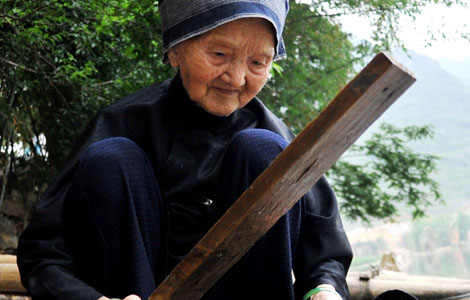Ties with Central Asia
Updated: 2013-09-09 07:04
(China Daily)
|
|||||||||||
President Xi Jinping's policy speech delivered at Nazarbayev University in Astana, the capital of Kazakhstan, on Saturday embodied China's vision on lifting ties with Central Asian countries to a new height. By outlining a blueprint for the future of China-Central Asia ties, Xi sent a message that China deems these relations a priority.
Among the multiple suggestions to rejuvenate the region, the proposal to build a Silk Road economic belt was eye-catching as it reflects ingenious thinking to integrate cultural ties with economic development in the region.
Commercial and cultural exchanges along the ancient Silk Road laid a solid foundation for the traditional friendship between China and Central Asia and Eurasia at large. With the modern Silk Road boasting a population of 3 billion and a market with unparalleled scale and potential, the initiative would have a far-reaching impact on promoting common prosperity in Eurasia, especially on the economic development of the inland countries.
Thanks to efforts from both sides, interaction between China and Central Asia has thrived over the years. In 2012, bilateral trade reached $45.9 billion, with China becoming Central Asian countries' biggest trading partner and biggest source of foreign investment.
As both sides now recognize the building of lasting peace and stability in the region is a prerequisite for the pursuit of common development, China and Central Asian countries share the same mission of safeguarding stability and promoting development in the region at large.
It is only natural that the two sides deepen political trust, expand cooperation in security and enhance strategic coordination within the framework of the Shanghai Cooperation Organization. They should support each other on issues concerning sovereignty, territorial integrity, security and other core interests as well as in cracking down on the "three evil forces" of terrorism, extremism and separatism in the region.
In his speech in Astana, Xi pledged China will never interfere in the domestic affairs of Central Asian nations, nor seek a dominant role in regional affairs. This shows that, contrary to the suspicion that China is seeking a sphere of dominance in Central Asia, China is resolved to build a community of common destiny with the region, which should be a blessing to all.
(China Daily 09/09/2013 page8)
Related Stories
China-Central Asia ties facilitate regional development 2013-09-08 16:18
Xi's speech on China-Central Asia ties catches global attention 2013-09-08 13:32
Xi proposes a 'new Silk Road' with Central Asia 2013-09-08 07:25
Yuan to play a bigger role in Central Asia 2013-09-04 07:44
Today's Top News
China will stay the course on sustainable growth
Syria issue should be handled within UN framework
Chinese president arrives in Uzbekistan for visit
China's inflation slows to 2.6%
Exports expand in August
Belgian PM 'confident' in China's economy
Network to take care of mentally ill
Trending news across China
Hot Topics
Lunar probe , China growth forecasts, Emission rules get tougher, China seen through 'colored lens', International board,
Editor's Picks

|

|

|

|

|

|





